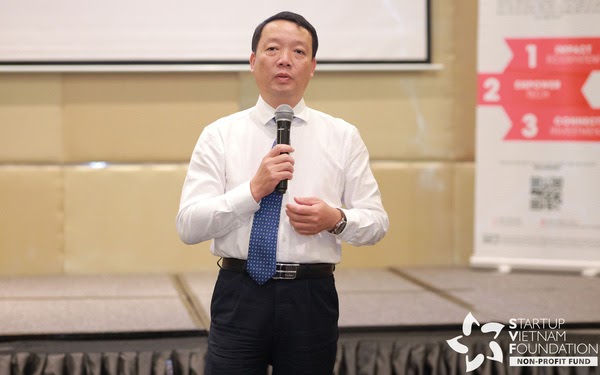Why founders startup their business in other cities? Part 1
18/11/2020
Why founders startup their business in other cities? Part 1Why do startups decide to establish or operate in Hanoi or Ho Chi Minh City, not in other localities like Hue or Thai Nguyen? Location is important for startups because the people who provide the resources they need to grow (such as revenue, human, capital, experience, ...) are not just developers or fundraisers.One of the recent statements by Vice Chairman of Thua Thien Hue Provincial People's Committee Phan Thien Dinh is showing Hue's strategy to become a hub for startup talents. He said: "Starting a business in Hue is not only for the Hue people but for all the young people in other places. Currently, the inflow of capital of investors from other places into Hue is quite large, and technology is the key economic development segment of Thua Thien Hue. Next year, attracting talents from the outside is one of our key tasks”.
This development philosophy of Hue sounds very plausible, but what does Hue need to be able to become a startup hub as they are setting out?
When do entrepreneurs come to a city to start a business?
Entrepreneurs need to choose to start their business in the places with the resources they need to be able to grow, or “Startup Commons”. It is mentioned in the book “Startup Cities: Why only a few cities dominate the global startup scene and what the rest should do about it” published by Peter S.Cohan in 2019.
To understand this concept, one can go back to England when the peasants were grazing in the village commons. If their cattle eat too much, these common will be exhausted and the community will be sparse, leading to disaster. But if their cattle eat less and the farmer adds fertiliser and seeds to the meadows, the grasslands and the cities around it will continue to grow. The world has changed a lot since then, so any comparison between these pastures and the start-up common is inappropriate. However, one principle remains that the energy entering both of these types of commons should be equal to the energy consumed. Capital, talent and mentorship in cities need to be balanced with the amount consumed by the entrepreneurs working there. Otherwise, founders will move to other lands.
Around the world, many startups start businesses in Singapore, where has capital resources, leading companies and open business culture for startups. If calculating only within Vietnam, there is also a difference between the number of startups established in Hanoi and Ho Chi Minh City compared to other provinces across the country.
Accordingly, to put it simply, for a city to become a "Startup common", there should be six elements: Pillar Companies, Universities, Human Capital, Investment Capital, Mentor Network, and Values.
Here is the part 2 and 3 as below:
Part 2:
Part 3:
Why do startups decide to establish or operate in Hanoi or Ho Chi Minh City, not in other localities like Hue or Thai Nguyen? Location is important for startups because the people who provide the resources they need to grow (such as revenue, human, capital, experience, ...) are not just developers or fundraisers.

One of the recent statements by Vice Chairman of Thua Thien Hue Provincial People's Committee Phan Thien Dinh is showing Hue's strategy to become a hub for startup talents. He said: "Starting a business in Hue is not only for the Hue people but for all the young people in other places. Currently, the inflow of capital of investors from other places into Hue is quite large, and technology is the key economic development segment of Thua Thien Hue. Next year, attracting talents from the outside is one of our key tasks”.
This development philosophy of Hue sounds very plausible, but what does Hue need to be able to become a startup hub as they are setting out?
When do entrepreneurs come to a city to start a business?
Entrepreneurs need to choose to start their business in the places with the resources they need to be able to grow, or “Startup Commons”. It is mentioned in the book “Startup Cities: Why only a few cities dominate the global startup scene and what the rest should do about it” published by Peter S.Cohan in 2019.
To understand this concept, one can go back to England when the peasants were grazing in the village commons. If their cattle eat too much, these common will be exhausted and the community will be sparse, leading to disaster. But if their cattle eat less and the farmer adds fertiliser and seeds to the meadows, the grasslands and the cities around it will continue to grow. The world has changed a lot since then, so any comparison between these pastures and the start-up common is inappropriate. However, one principle remains that the energy entering both of these types of commons should be equal to the energy consumed. Capital, talent and mentorship in cities need to be balanced with the amount consumed by the entrepreneurs working there. Otherwise, founders will move to other lands.
Around the world, many startups start businesses in Singapore, where has capital resources, leading companies and open business culture for startups. If calculating only within Vietnam, there is also a difference between the number of startups established in Hanoi and Ho Chi Minh City compared to other provinces across the country.
Accordingly, to put it simply, for a city to become a "Startup common", there should be six elements: Pillar Companies, Universities, Human Capital, Investment Capital, Mentor Network, and Values.
Here is the part 2 and 3 as below:
Part 2:
Part 3: